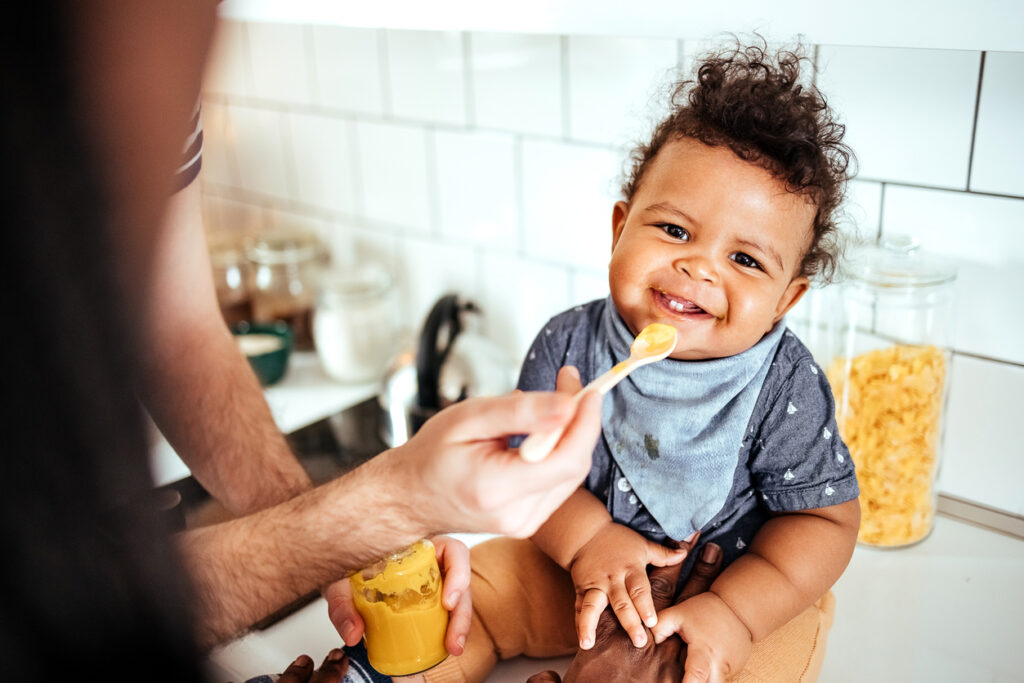13 Groups Petition FDA to Fix its Flawed Action Levels for Lead in Baby Foods
Washington, D.C.—On January 7, the U.S. Food and Drug Administration (FDA) announced it had set action levels that will reduce babies’ dietary exposure to lead by less than 3.6% while creating loopholes for all but the worst-performing companies to maintain the status quo. That’s why 13 leading food safety and children’s health organizations formally petitioned FDA to fix its flawed guidance to better protect babies from lead.
FDA’s action levels are 20 parts per billion (ppb) of lead in dry infant cereal and single-ingredient root vegetables and 10 ppb on most other commercial baby foods. However, it exempts snack foods, toddler beverages, and infant formula and does nothing to help parents shopping for ingredients outside the baby food aisle.

“According to the Centers for Disease Control and Prevention and the World Health Organization, no level of lead is safe for infants and toddlers,” said Shakoora Azimi-Gaylon, Senior Director of Toxic Exposures and Pollution Prevention at the Center for Environmental Health. “The new FDA’s lead limits for commercial baby foods are insignificant and would not considerably reduce lead exposure to protect children’s health. The FDA should set health protective targets for lead in children’s food.”
Azimi-Gaylon recently spoke at the 2025 Western Regional Lead Conference on lead in consumer products and how to improve policies to adequately reduce the risk of lead exposure.
“In 2020, FDA acknowledged that ‘no safe level of lead exposure has been identified for children’s health,’ prompting the agency to launch its Closer to Zero program,” said Tom Neltner, National Director at Unleaded Kids, the only national organization focused on reducing lead exposure from all sources. “The consequences of exposure include lifelong impacts on cognitive development, learning ability, and lifetime earnings. Research from Unleaded Kids estimates that dietary lead exposure reduces a typical child’s lifetime earnings by up to $29,400, while eliminating this exposure could yield societal benefits of $107 billion annually.”
“FDA’s new lead guidance is deeply misleading,” added Jane Houlihan, Research Director at Healthy Babies Bright Futures, a national organization measurably reducing largest sources of babies’ exposures to chemicals that harm brain development. “It offers false reassurance while ignoring the biggest sources of lead in babies’ diets. By focusing only on select commercial baby foods and sidestepping infant formula and homemade meals, their plan barely moves the needle. To truly protect babies, the FDA must act on all significant sources of contamination and set meaningful limits—because anything less fails to protect our most vulnerable.”
While eliminating lead may not be realistic, reducing dietary exposure by at least 25% for babies and young children is achievable, according to Houlihan. Further, it will yield societal benefits of about $26 billion a year, a potentially huge return on the investment, according to Unleaded Kids’ research.
The petition for reconsideration to FDA is spearheaded by Unleaded Kids and backed by a coalition or organizations, including Center for Environmental Health, Center for Food Safety, Consumer Federation of America, Consumer Federation of California, Consumer Reports, Defend Our Health, Earthjustice, EcoMadres, Environmental Working Group, Food & Water Watch, Healthy Babies Bright Futures, and Mom’s Clean Air Force, submitted a petition for reconsideration.
“FDA exempted all snack foods and beverages from the guidance but failed to define those terms, effectively allowing a baby food company to classify its purees—items that dominate their product lines—as snack foods or beverages,” said Neltner. “Instead of pushing industry to reduce lead levels, the FDA has effectively endorsed the status quo, permitting all but the worst offenders to continue business as usual.”
To request an interview, email Tom Neltner at [email protected] or Jane Houlihan, email [email protected].
